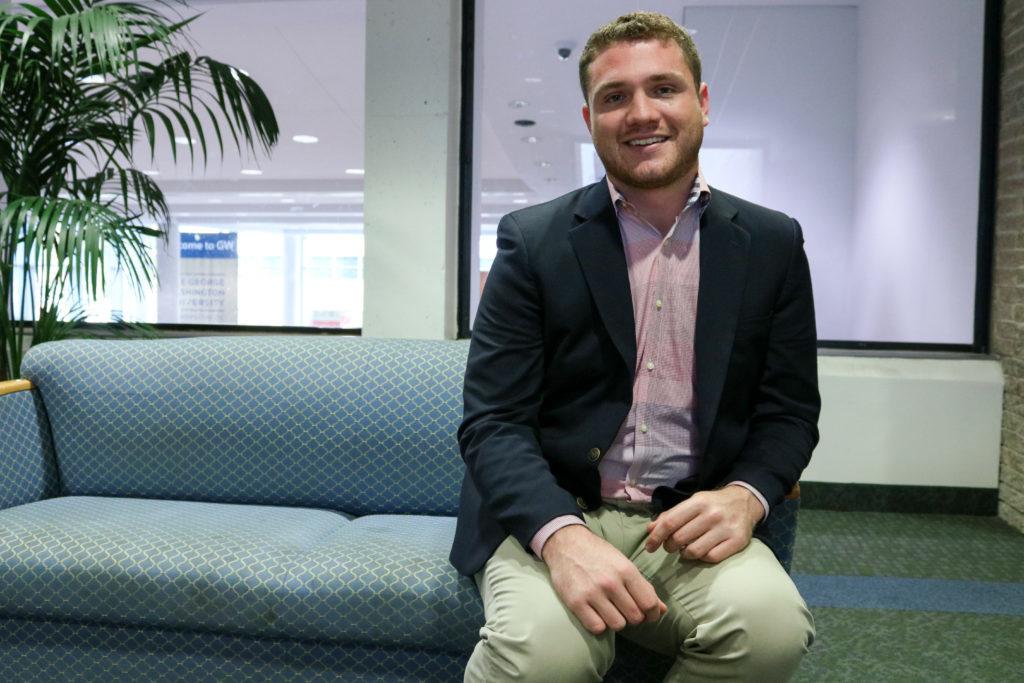The Student Association’s student health advisory council has been put on hold after the Colonial Health Center underwent a change in leadership last month.
The advisory council, which was established in early September but never formally met, aimed to serve as a student forum to voice opinions and concerns about health insurance, quality of care and affordability at the CHC. But after Glenn Egelman, the former associate dean for the CHC, suddenly stepped down last month, students are now renegotiating the plans for the council.
Reed Elman, the SA’s co-director of student health services, said the council has “gone under review” now that Danielle Lico, the associate dean of students for student administrative services, is leading the CHC on an interim basis. He said the SA will reach a new agreement with officials about the makeup of the council in the coming weeks.
Elman said he met with Lico Tuesday to go over some of her concerns about how the council was too formal and should include more student input.
“Her and I agreed that student input is really important to the Colonial Health Center and to doing well and supporting student health on campus,” he said.
He added that Egelman’s departure was a “real setback” for the cause, because he supported many of the council’s proposed initiatives, like lowering health insurance costs, and had the medical background to be a positive changemaker for the center. But Elman said Lico — who does not have a background in medicine — seems committed to furthering some of those efforts, like implementing an electronic health record system.
Lico said she is helping the SA rewrite the council’s establishing document to “remove much of the administrative processes related to voting, titles and appointments” and expand student input on the council.
“We anticipate two to three meetings will occur during the remainder of the fall semester,” she said in an email. “These meetings will focus on the student health insurance plan for the 2017-2018 academic year and beyond.”
Stephanie Gill, a member of Care for GW, an unofficial student organization that lobbies for lower health insurance costs and a member of the health advisory council, said she is concerned that changing the council’s makeup and responsibilities will further delay the council’s start and dampen the official voices on it.
“We’re going to be looking at two to three meetings this semester when like a month ago we were planning on meeting for the first time, and so in that time we could’ve easily had two meetings,” she said. “So you’re looking at cutting the number of meeting times in half.”
Gill said she is unsure if Lico will be as receptive to reform in the center as Egelman.
“I don’t know how it’ll pan out,” she said. “The reason why SHAC was so effective in the first place was because Glenn was so in support of it, and we knew that going ahead our thoughts and opinions would actually be heard and listened to – not to say that they still won’t be heard, but there is that kind of aspect of it that’s missing now.”
In an interview, Egelman said the council was created with input from leadership in both the SA and the Division of Student Affairs.
“I’m thrilled to see that the work that we put into creating the student health advisory council will continue into the future,” he said.
SA President Peak Sen Chua said the forum was supposed to start its work in mid- to late-September but the leadership changes at the CHC put the council in limbo. He said the council was going to be comprised of five student members – the SA president, the two SA directors of student health services, one undergraduate member and one graduate member – and about three staff members in the CHC.
He said after Egelman stepped down, the student members of the council weren’t sure whether it could continue but Lico has expressed interest in relaunching the council on a clean slate and working with the SA to set it in motion.
“We want to streamline when meetings will take place, how often they will take place and then outlining room for outside stakeholders, people with experiences in the CHC to come in, administrators who aren’t members of the community come in,” he said.
Sydney Nelson, the SA’s executive vice president, said making the council less formal won’t change its mission to help students and make positive change in the CHC.
“Peak and I, as well as the rest of the SA, are still just as committed student voices are heard in the CHC and that student concerns are addressed and validated,” she said. “So from our perspective, we are not going to change how strongly we feel about working with the administration on improving the Colonial Health Center.”
Dani Grace, Amanda Hillware, Monica Mercuri and Sarah Roach contributed reporting.





